Varadaraja Perumal Temple or Hastagiri or Attiyuran is a Hindu temple dedicated to Lord Vishnu located in the holy city of Kanchipuram, Tamil Nadu, India. It is located in a suburb of Kanchipuram known as the Vishnu Kanchi that is a home for many famous Vishnu temples.
It is one of the Divya Desams, the 108 temples of Vishnu believed to have been visited by the 12 poet saints, or Alwars.
One of the greatest Hindu scholars of Vaishnava Visishta – Advaita philosophy, Ramanuja is believed to have resided in this temple. Kanchi got its name as Ka- Brahma , Anchita- the place where brahma made puja to god is called kanchi.
The temple covers an area of 23-acre complex and shows the architectural skills of ancient Vishwakarma Sthapathis in temple architecture and is famous for its holiness and ancient history.
The temple has three outer precincts (prakarams) namely Azhwar Prakaram, Madai Palli Prakaram and Thiru Malai Prakaram. There are 32 shrines, 19 vimanams, 389 pillared halls. The main sanctum faces west and can be entered through a 130 feet tall, 7-tiered rajagopuram (main gateway tower).
The hill, called Hastagiri, is 360 m (1,180 ft) long by 240 metres (790 ft). The 24 steps in the temple represent the number of letters of Gayatri Mahamantra. One of the most famous architectural pieces in the temple is the huge stone chain sculpted in a single stone.
The temple has around 350 inscriptions from various dynasties like Chola, Pandya, telugu Chodas, Kandavarayas, Cheras, Kakatiya, Sambuvaraya, Hoysala and Vijayanagara indicating various donations to the temple and also the political situation of Kanchipuram. There is a belief that the temple was first built by the Pallava king Nandivarman II(731-796) and it was expanded during the rules of the great Chola kings Kulottunga Chola I and Vikrama Chola (1075 – 1135).
During the 17th century, the temple was under the attacks from Mughals headed by Aurangazeb. The idols of the temple were ported to Udayarpalayam in modern-day Tiruchirapppali district during 1688. It was only during 1710 that the situation was ripe for the idols to be returned.
It is also said that during British rule, Robert Clive, the British general visited the Garudotsavam and presented a valuable necklace (now termed Clive Maharkandi), which is adorned during a special occasion every year.
Lord Brahma was born from the Nabhikamala of Sri Hari. Brahma was given the duty of creation which he performs for a long time. After creation of the World, Brahma desired the appearance of worship Lord Narayana in all His glory to offer his prayers.
His desire was not fulfilled even after he did meditation and austerities for a long time. Then a holy voice informed him that he (Brahma) should do thousand “Aswametha Yagas” or do one “Aswametha Yaga” at a sacred place in Bharatham called “Sathya Vradha Sthala”. This means a good deed performed in Kancheepuram will yield benefits by thousand times.
Brahma called Vishwa Karma, the celestial sculpture to erect a city at Kancheepuram where he wanted to perform Yaga. Vishwa Karma built a beautiful city which was appreciated by even the celestial beings and there Brahma started performing Yaga without his wife Saraswathi. (It was customary to do yaga jointly with one’s consort).
Having heard about this yaga, Saraswathi got angry and wanted to destroy yaga salai by taking the form of a river, which was later called “Vegavathi”. Brahma was afraid and surrendered before Lord Narayana requesting the Lord to save him from this imminent danger. Lord Narayana lied down across the flowing river.
As Saraswathi did not have strength to cross Lord Narayana, she entered the earth and disappeared.
Later Saraswathi got compromised and Brahma performed ‘Aswametha Yaga’. At the end of the Aswametha yaga, the brightest and most beautiful Lord Varadarajar appeared along with his consorts Sridevi and Boodevi in Punniakodi vimanam which came out of Yaga Agni (Holy Fire).
Lord Varadaraja asked Brahma what he wanted. Brahma begged the Lord that the Lord Devarajaswamy should remain in the same from at this sacred place permanently and to give darshan to the pleasure of all living beings in the world.
Lord Varadarajar, the bestower of boons conceded to Brahma’s request. Since then the Lord Varadaraja has been giving darshan to the devotees at this holy place called “Hastha giri”. ‘Hastham’ means elephant and “giri “means hill.
Lord Varadaraja was worshipped by Brahma in “Kritha Yuga”; by Gajendran (Sacred elephant suffered from a crocodile) in “Treta yuga”; by the Deva Guru (Teacher of Devas) Brahaspathi in Dwapara yuga ; and by Adiseshan in this “Kali Yuga”.
It is quoted in puranas that, a Hole was formed by the Horn of Varaha swami when lifting the earth from ocean during Varaha avatara. This hole is present in Kanchi Varadharaja swami temple, on above which the main shrine stands. This hole is mentioned as a gate way to pathala loka.
After raising above to the bholoka, varaha swami shakes his body (similar to that of a varaha) by which the sweat and water from his body drops out to form the Anantha Srovara.
This Anatha Sarovara later in kaliyuga will be the place for Athi Varadha which is the wooden image of Varadarajaswamy preserved within a silver box from which water is pumped out every 40 years. It is kept back in the silver casket and immersed in the water. It is believed that there is a heavy downpour after the idol is immersed to fill the tank.
Athi Varadharaja is one among the 4 Brahma Kararchita Varadaja moorthies , carved out of Athi Tree by Vishwakarma in Kritha Yuga. This moorthi was the main deity (Moola Moorthi) in the Grabhagraha, i.e inside PunyaKooti Vimana, until early 16th century.
Due to Muslim Invasions, to preserve the valuable moorthies , the Athi Varada was immersed inside Pushkaranai(Anatha Saravora) inside the temple premises secretively, such that only one family knew the exact place.
For nearly 40 long years, the temple had no moorthies in the grabhagraha and no pooja was being performed in the temple. The two brothers in Dhatacharya lineage,who were the Dharamakartha of the temple at that time and under whose authority the hiding of moorthy took place, passed away. Their two sons, after more than 40 years, tried vigorously to bring the moorthies back to the temple, to start the pooja again. With the help of a Madwa , the Utsava moorthies were brought back from Udayar Palayam forest and found their place inside the temple.
Unable to find the Athi Varadha, the authorities decided to place a Vigraha made of stone from the nearby place called PazayaSeevaram (30 kms approx. from the temple). This moorthi is called Devaraja Swami and it is known to be Athri Rishi Kararchita moorthy. This moorthy resembled Athi Varadharaja and was present in a mountain called Padma Giri in Pazayaseevarm , where 3 rivers (Payasvini, Vegavathi and BahuNadhi) met forming a Triveni Sangama.
This moorthy, called Devaraja, was brought to Kanchipuram and installed as moolamoorthi inside punyakoti vimana and the regular pooja started.
Around 1709 due to some reasons (which are unknown till the date) the Pushkarani was emptied and the Athi Varadharaja was seen lying inside. Then Authorities decided that this moorthi has to be taken out every 40 years for pooja for 48 days and again to be immersed in the kalyani for another 40 years and so on.
This decision was based on the fact that, Kaliyuga pooja for Varadharaj is done by sesha devuru and Anatha sarovara has sesha devaru. The Next Athi Varadha Raising is happening in this year July 1, 2019 to Aug 18, 2019.
Another significant thing about the temple is beautiful engraved lizards and plated with gold, over the chamber. The history goes as; two sons of Sage Brighu were the disciples of Sage Gautama. They did not notice that two lizards had fallen into the water they brought for their mentor’s puja. Gautama cursed them to be changed as lizards.
When they sought a relief, the Rishi said it lies in Kancheepuram. After a long journey around the world, they reached Kanchipuram and begged Lord Perumal for salvation. Perumal said that their soul would reach Him while their mortal coil would remain in lizard forms. He also said that Sun and Moon would be witnesses to this boon.
Devotees also pray to the golden and silver lizards in the temple for relief from any untoward happening due to the fall of real lizards on their body.
Ramanujacharya used to perform Jala Kainkaryam (bringing water for the worship of the Lord) at this shrine, before taking the holy ascetic orders. Vedanta Desikan has written several works in praise of the Lord, such as Nyasa Dashakam, Varadaraja Panchasat, Thiruchinnamalai. He also says that he does not want Vaikunta – Vasa, as there might not be a Lord similar over there.
Interestingly, Swami Desikan is the only Acharyan, whose vigraham is taken inside the shrine of Lord Varadaraja, once a year.
Thirukkachi Nambigal used to bring flowers everyday for lord and he did Aalavatta Kaingariyam, waving to produce breeze with the help of hand fan. It is believed that Vardharaja used to converse with him, while he was doing that seva.
The temple is famous for its huge umbrella used during festive occasions.
During the bhramotsavam (major festival) in Vaigasi (May/June), thousands of people throng the temple and that increases at least by a two-fold during the Garuda Vahanam and the Ther Thiruvizha(Chriot festival) procession.
People pray to Perumal for achieving excellence in education and family welfare and prosperity. Lord Sudarshana Azhwar removes the obstacles in wedding proposals of the devotees.
They also succeed in court cases and gain mental peace. Women facing health problems and seeking child boon pray to Mother Perundevi Thayar.

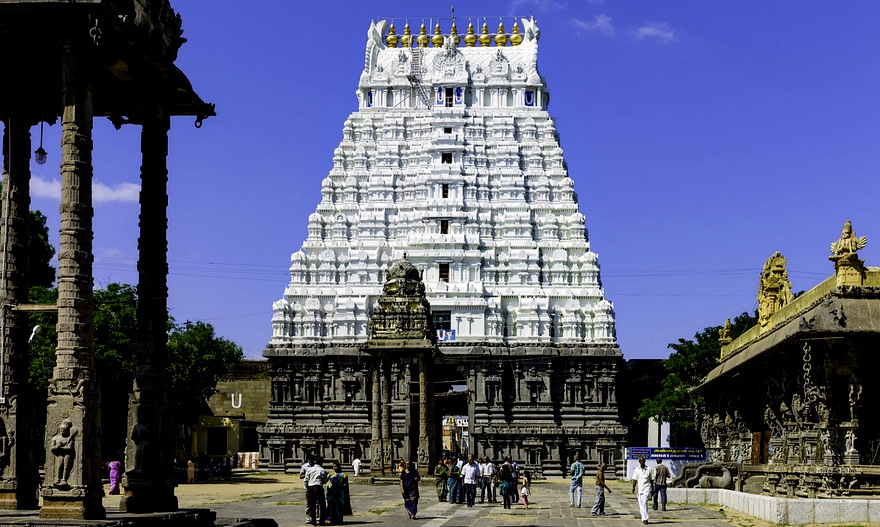
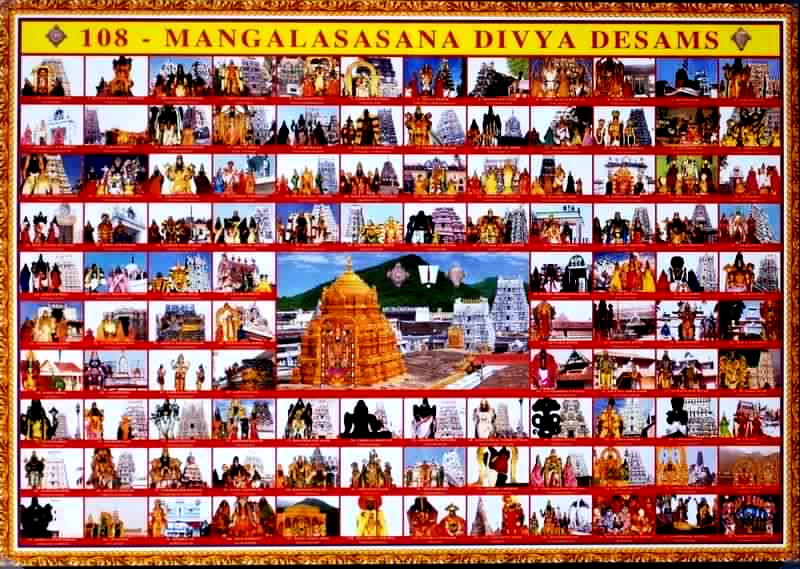
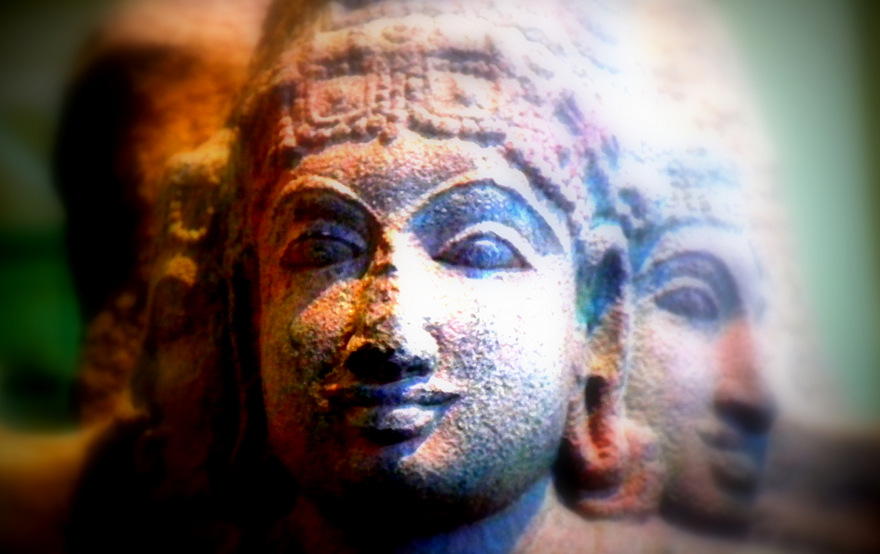
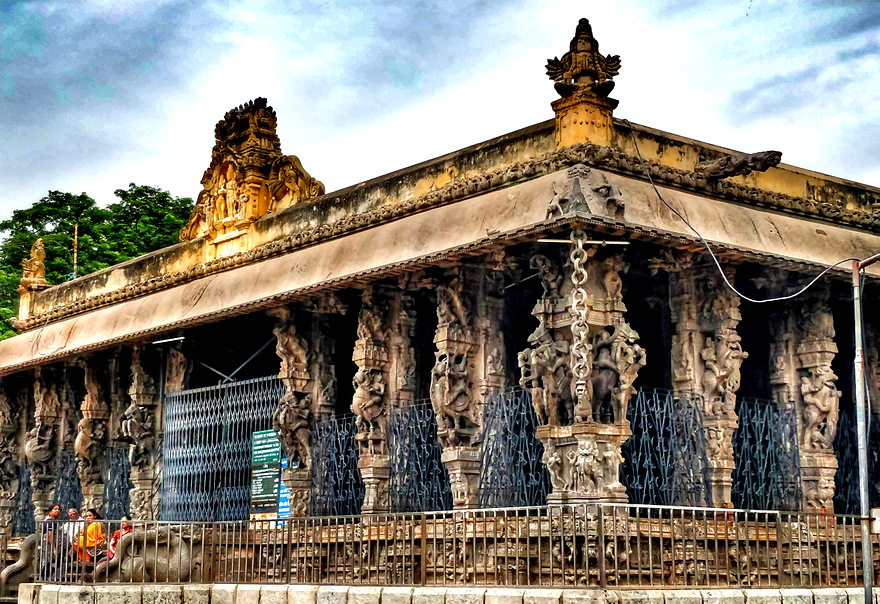
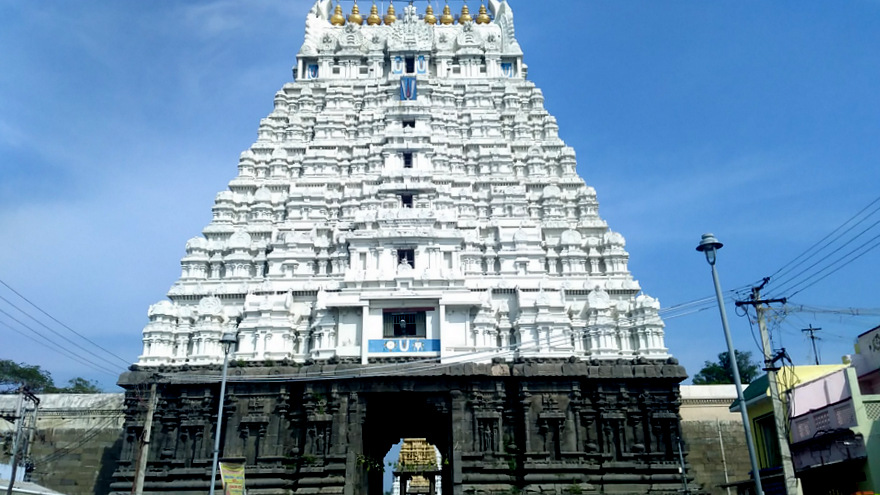
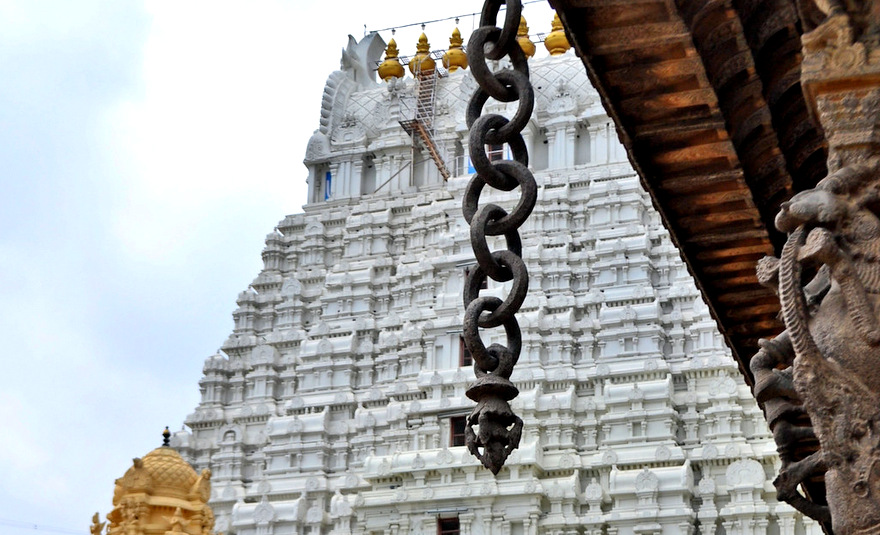
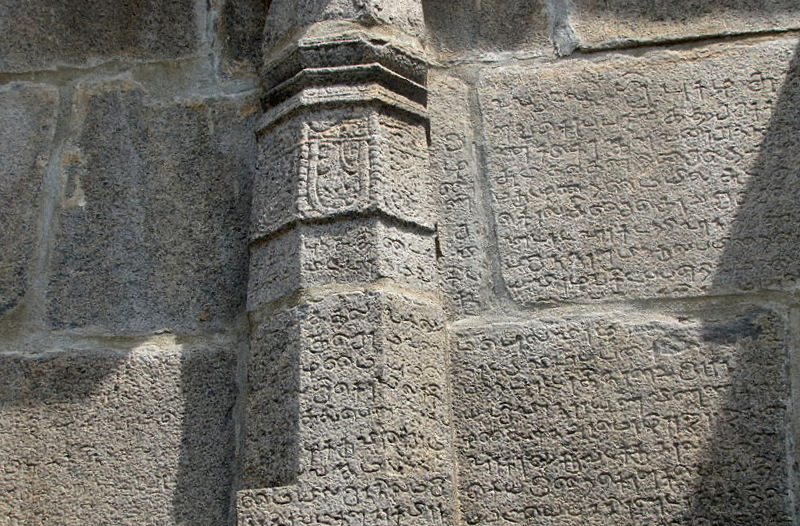
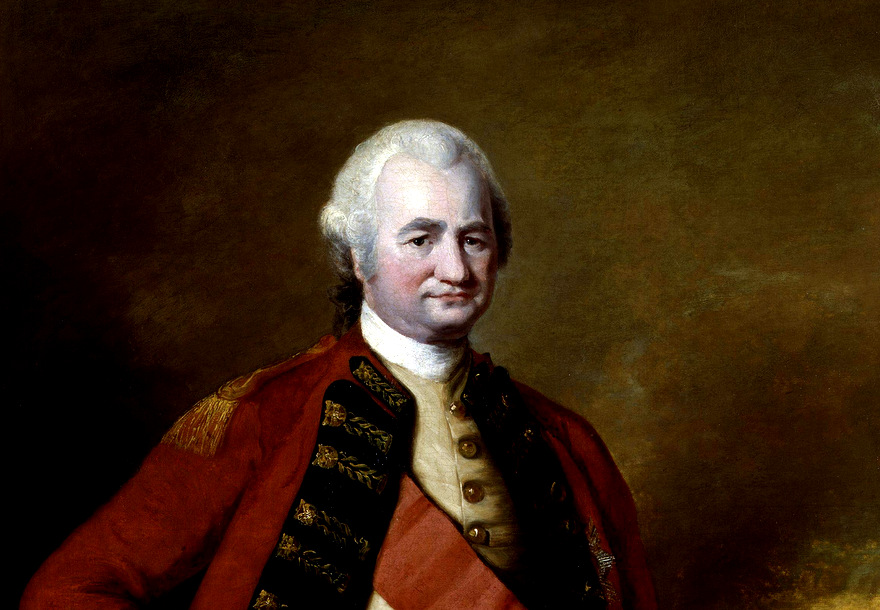
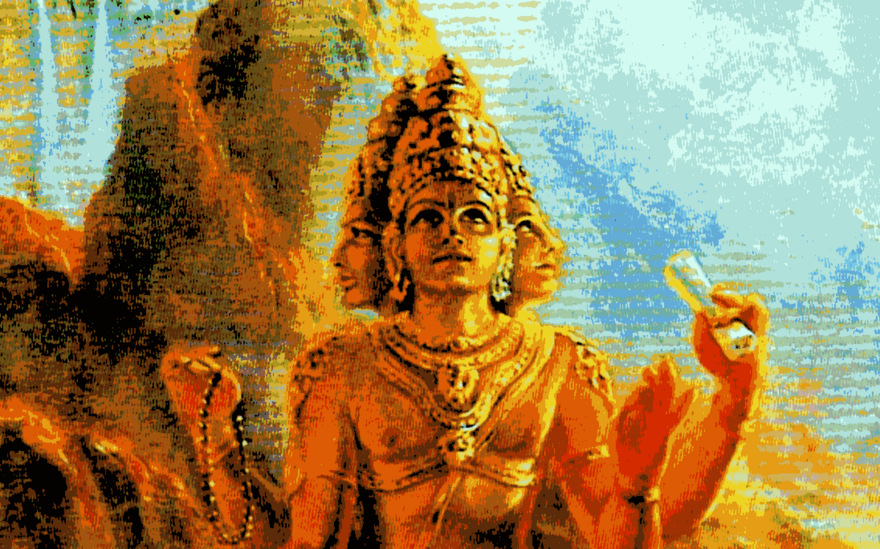
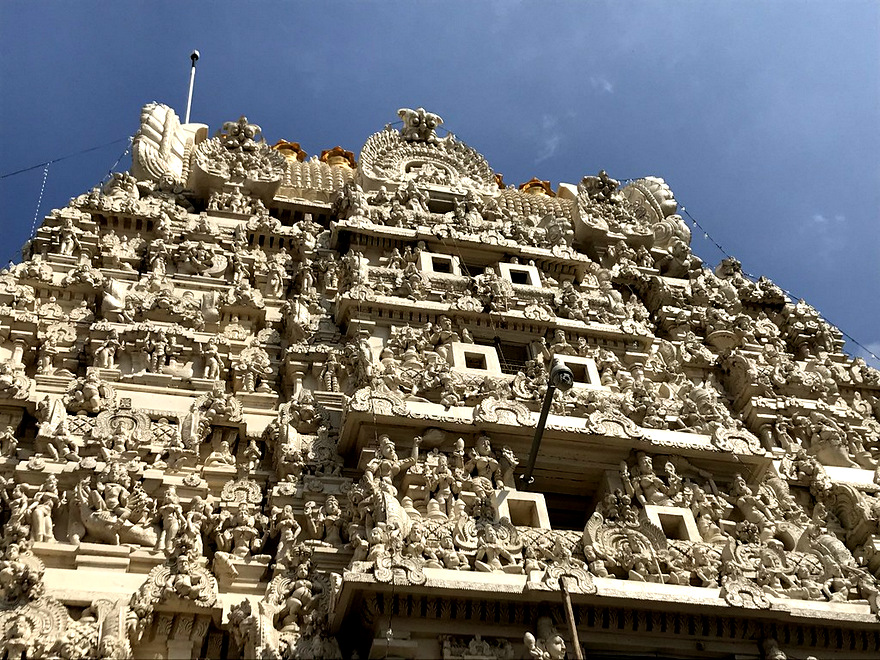
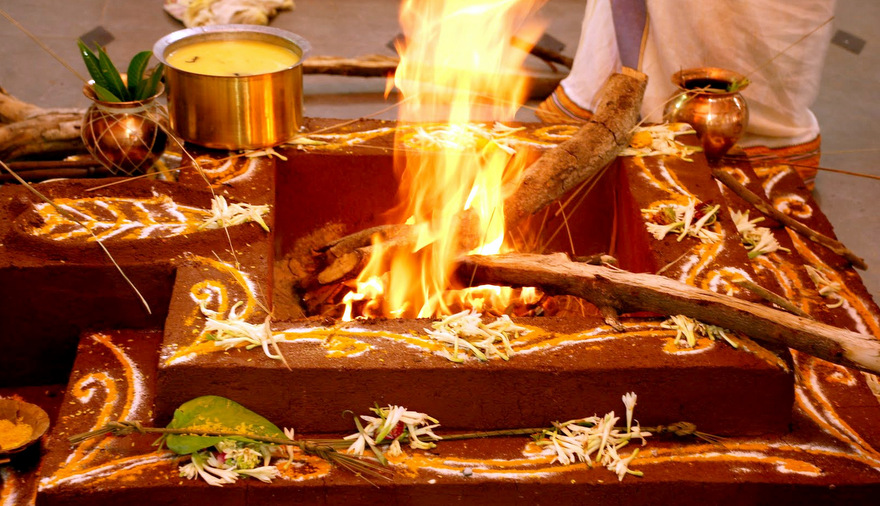
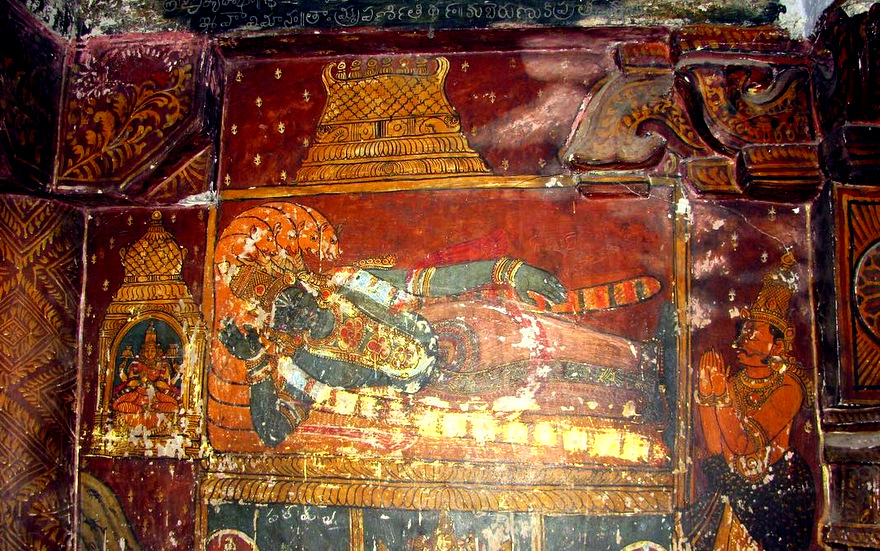
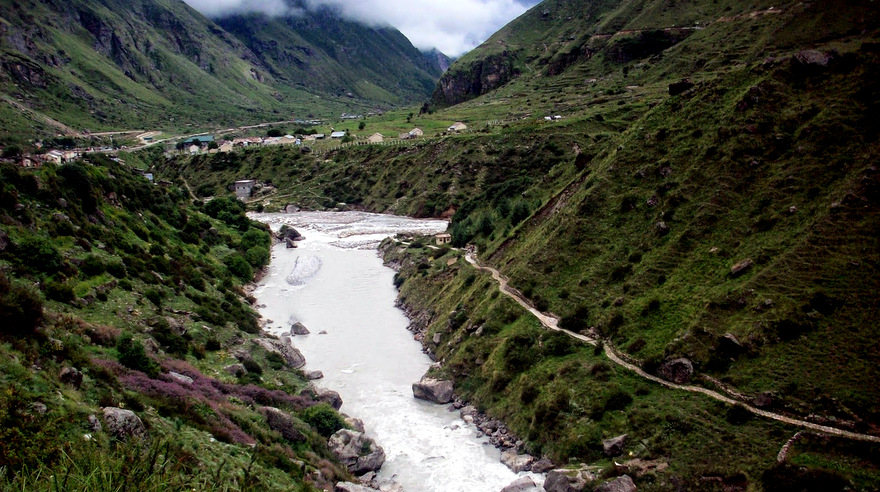
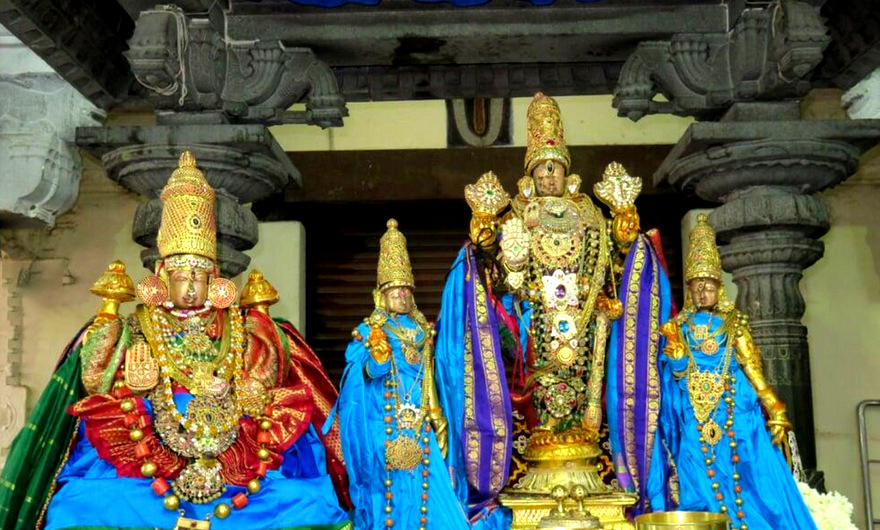
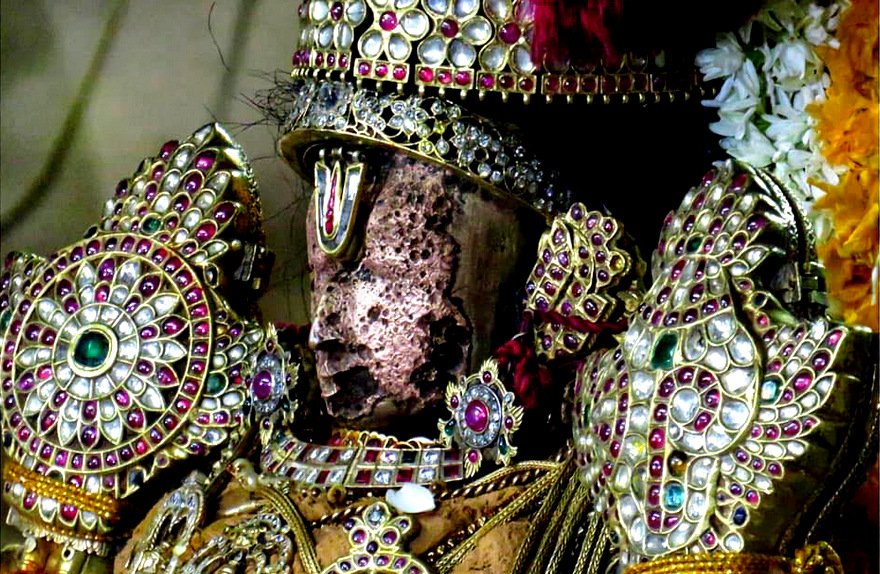
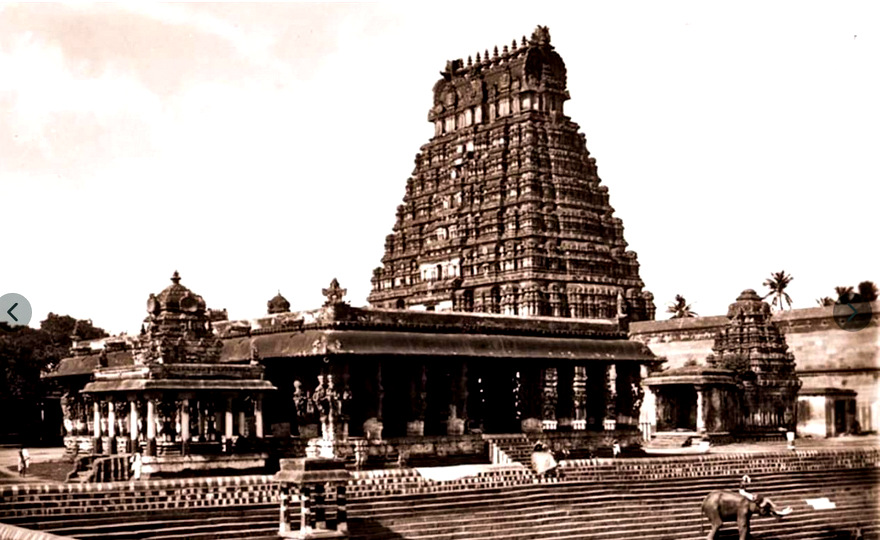
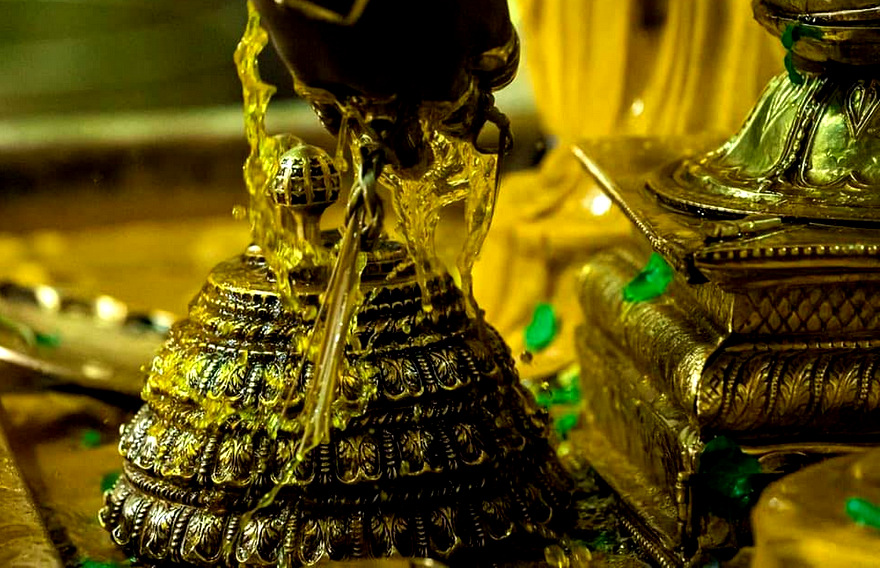
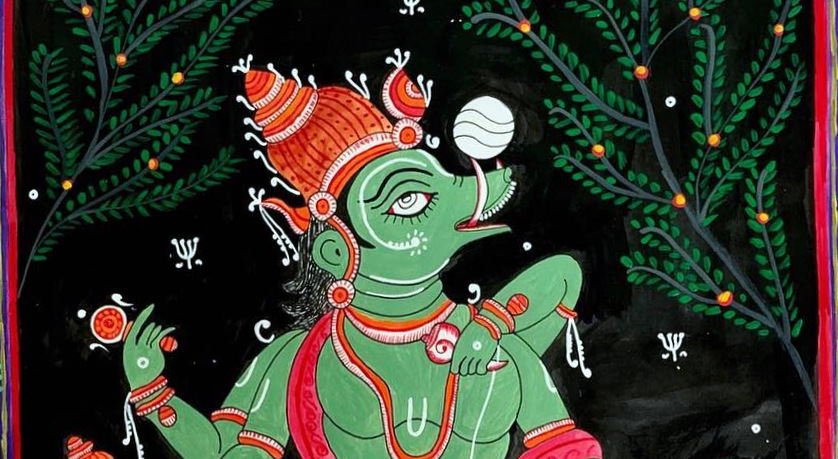
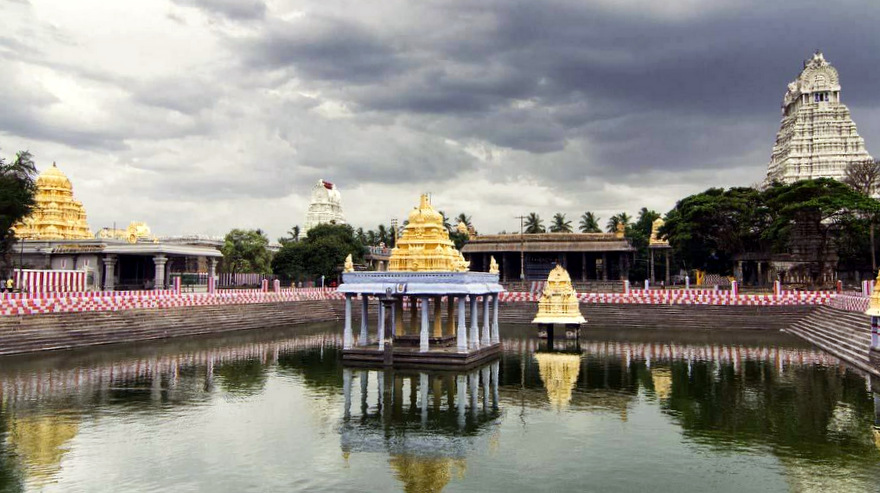
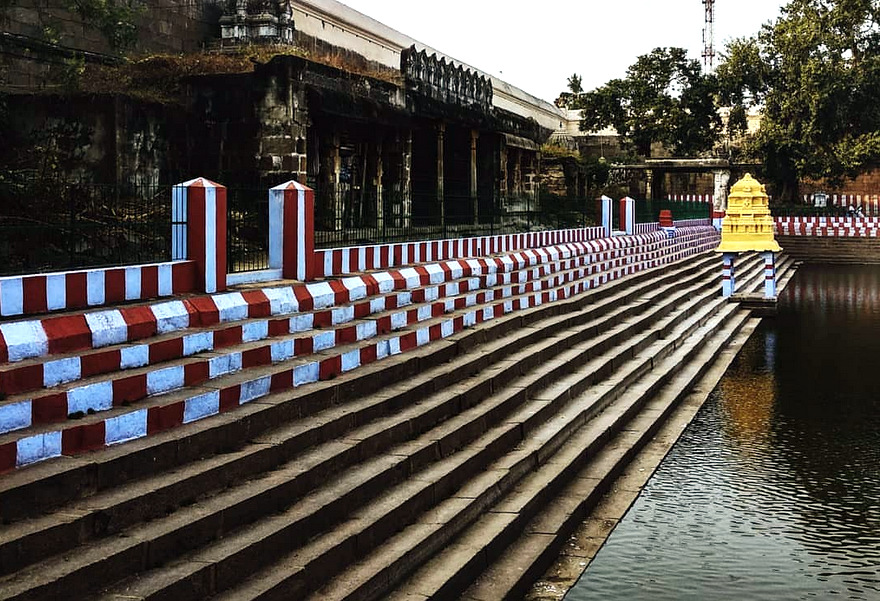
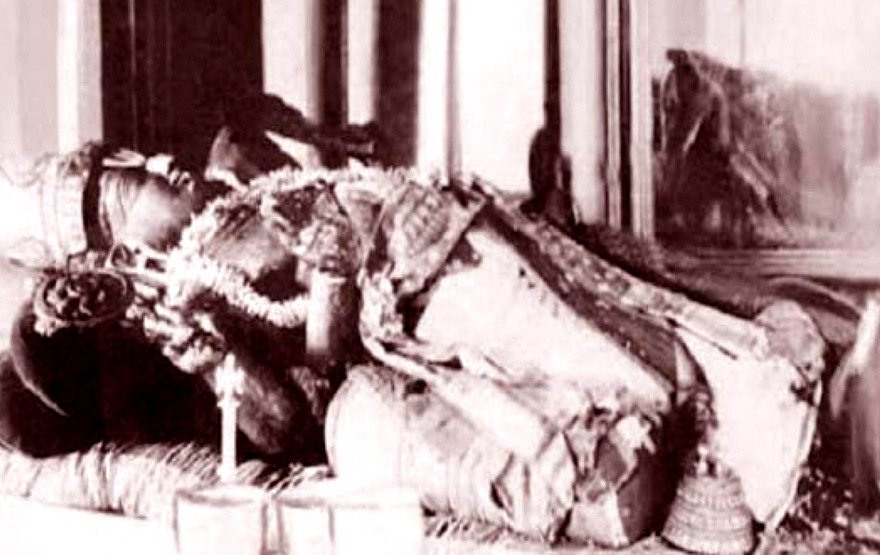
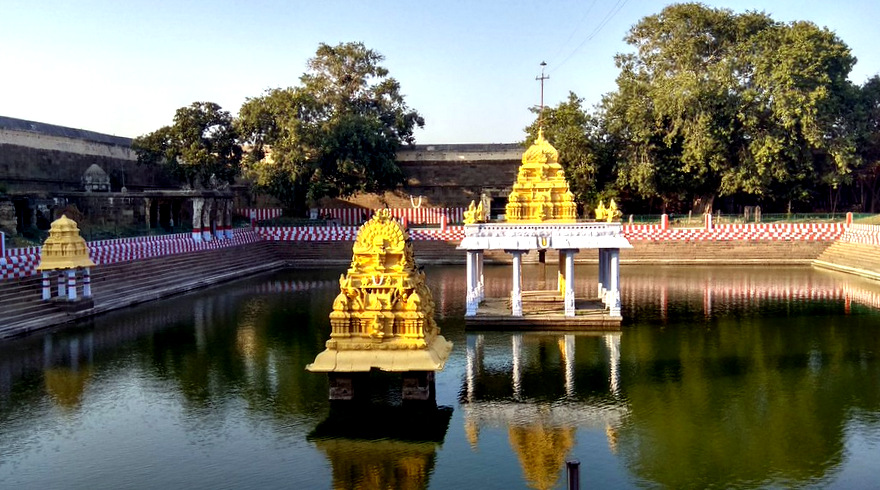
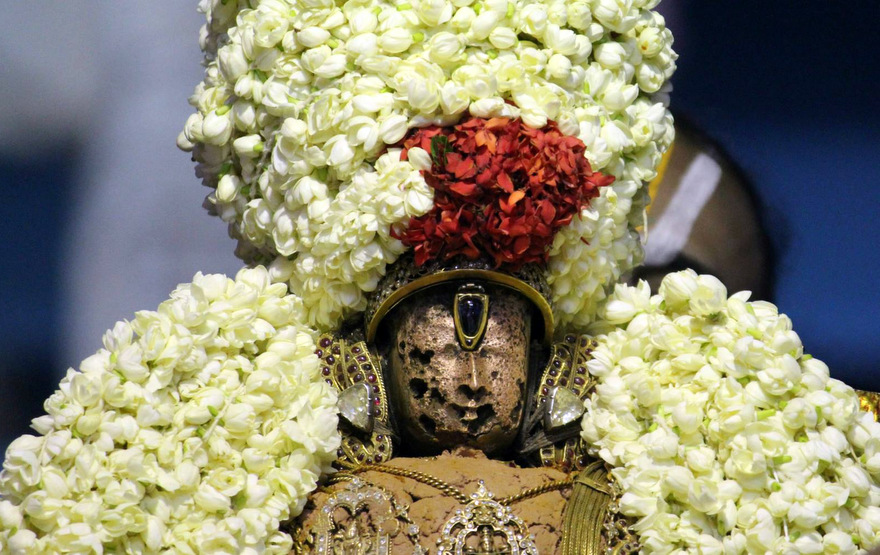
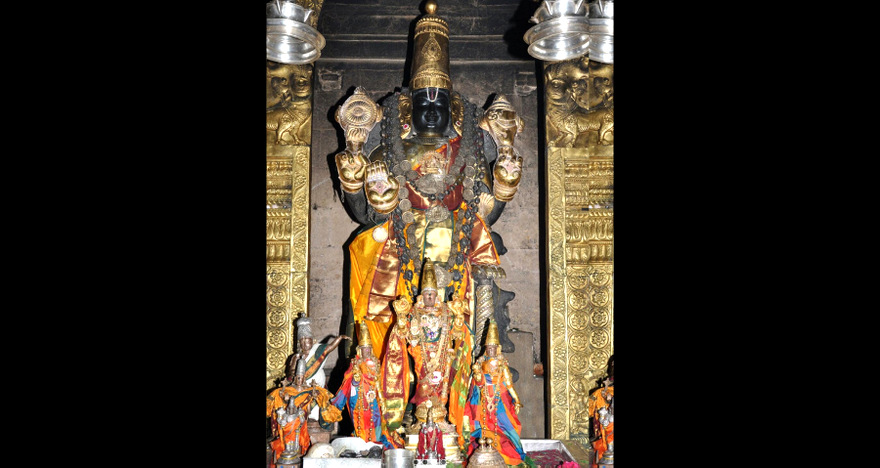
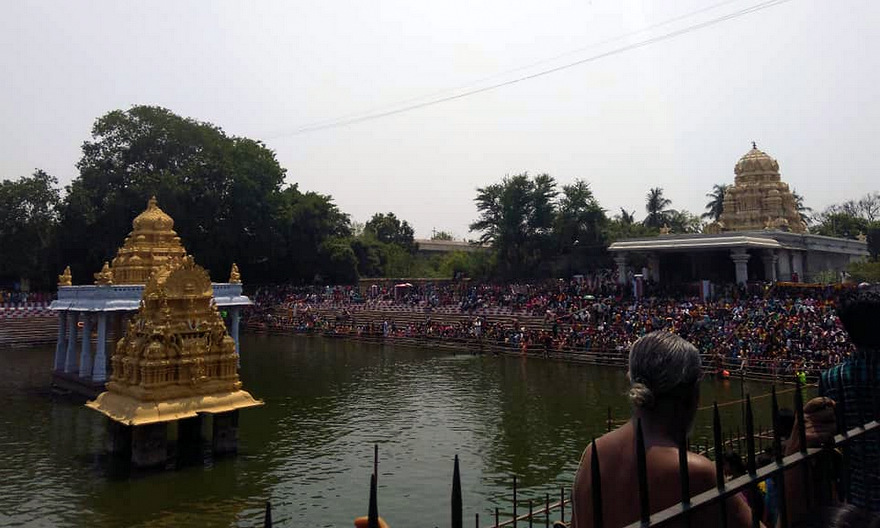
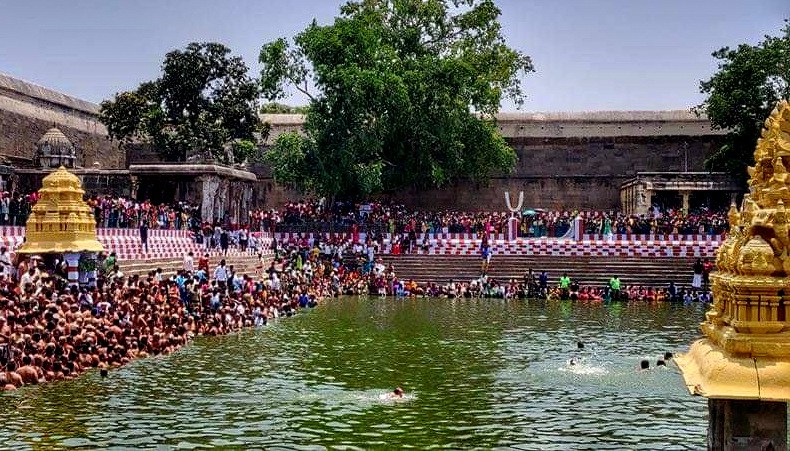
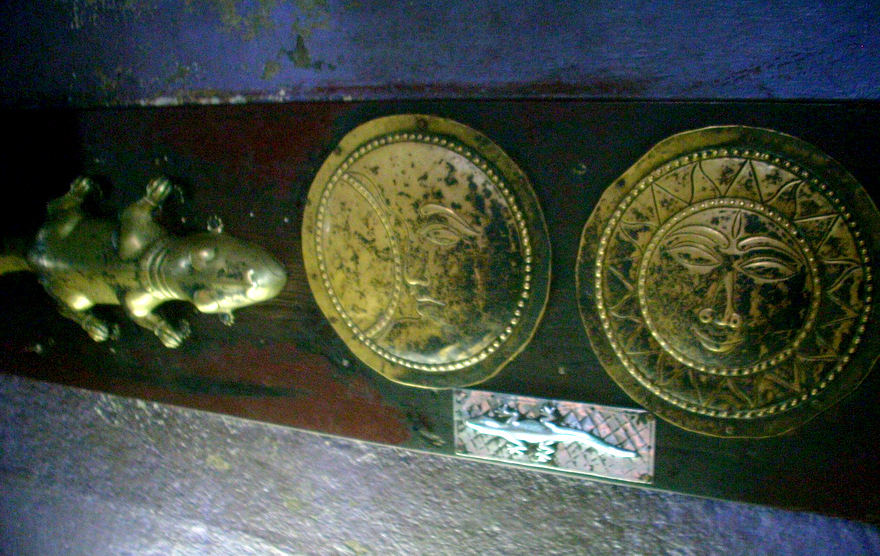
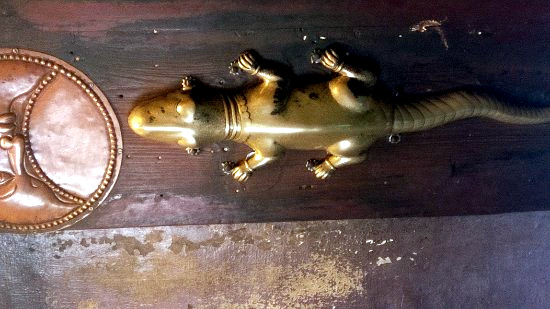
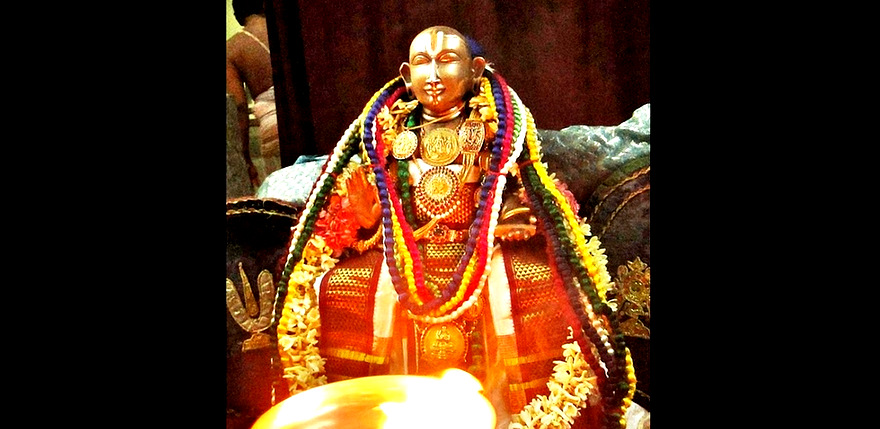
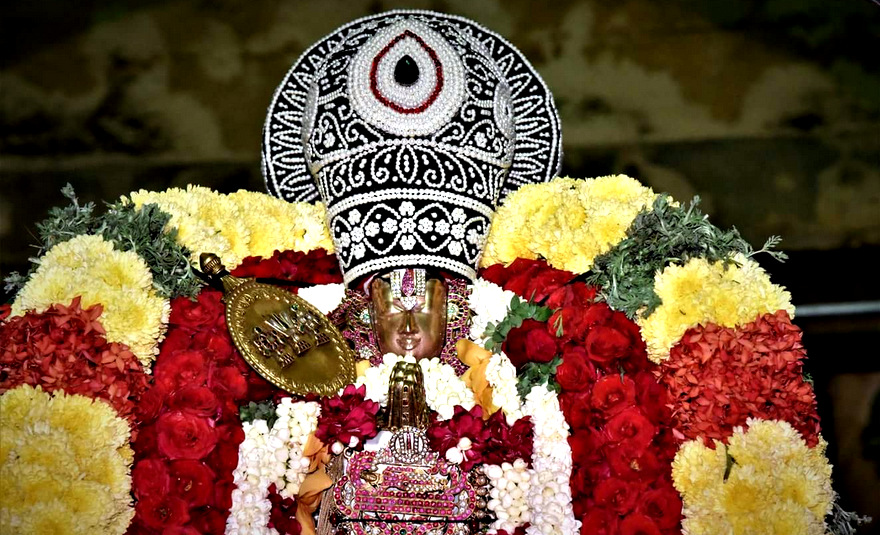
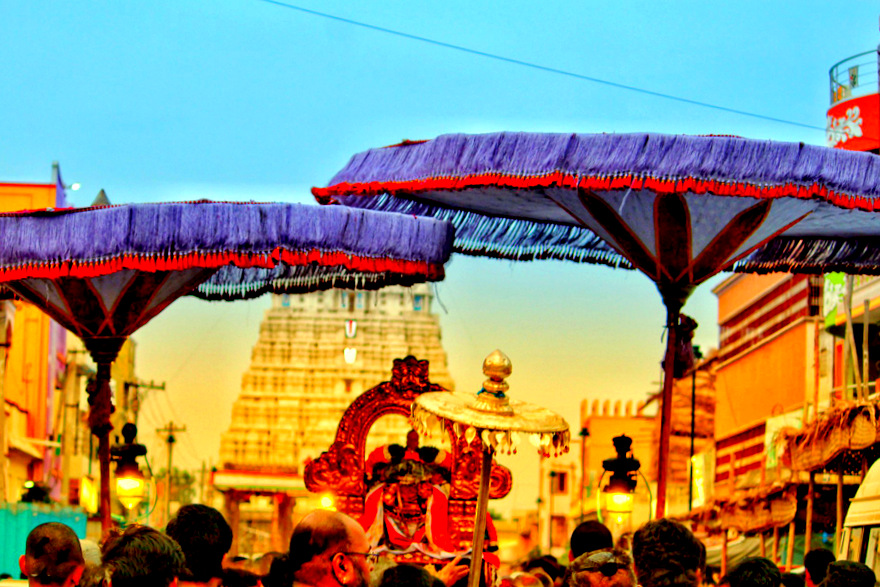
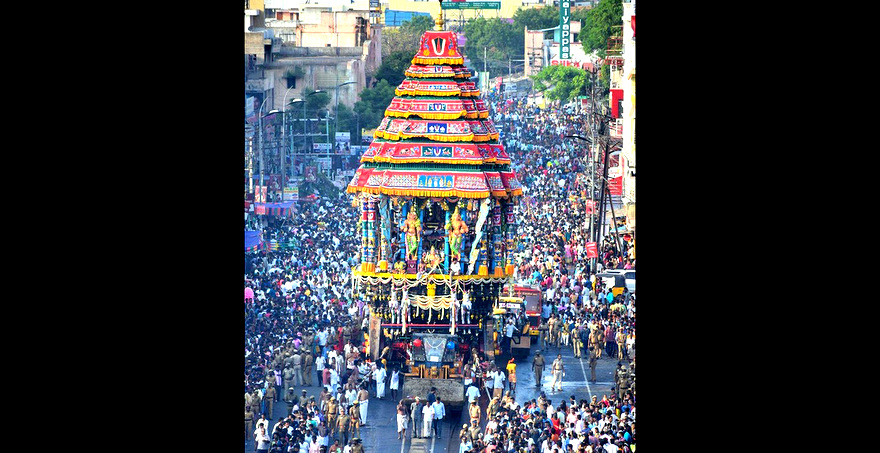
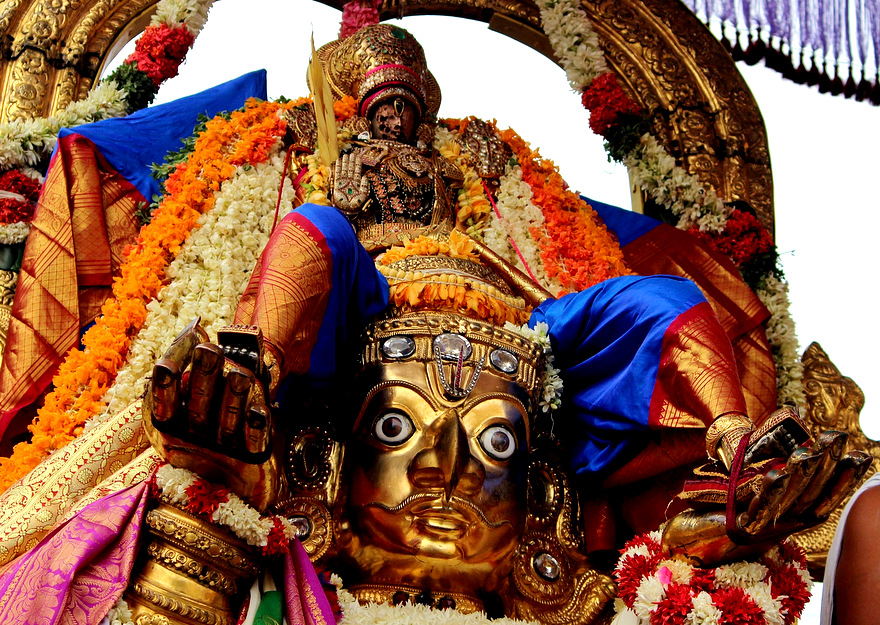
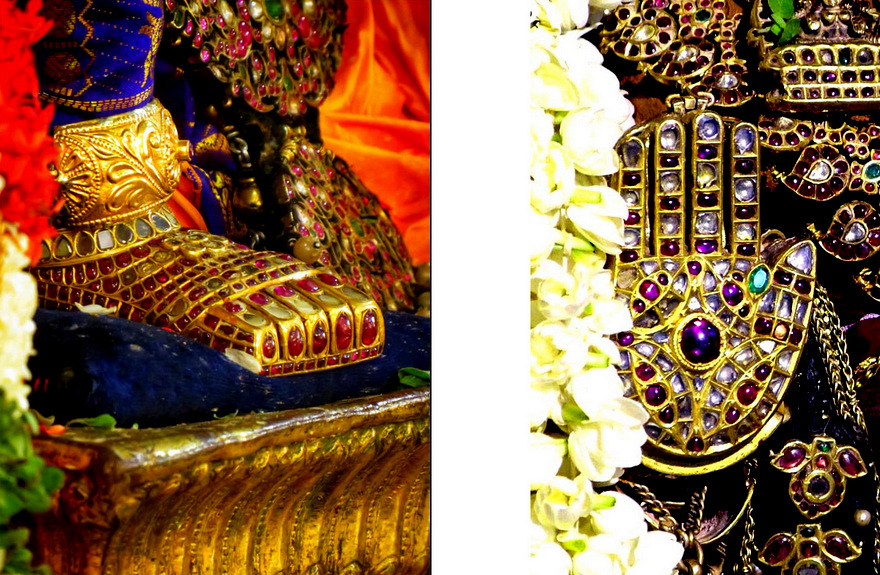
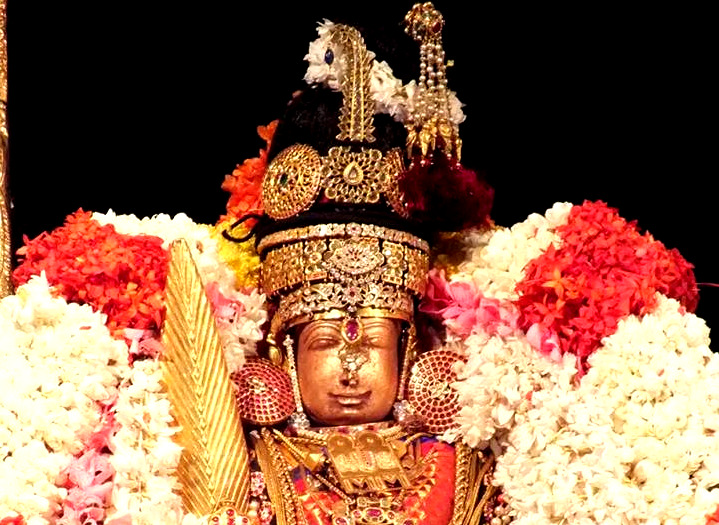
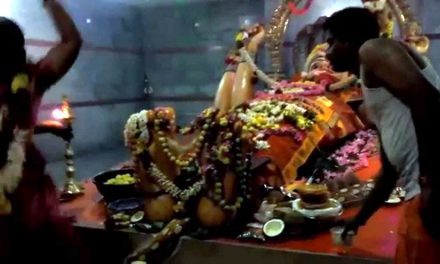
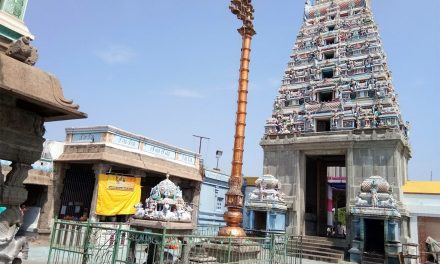
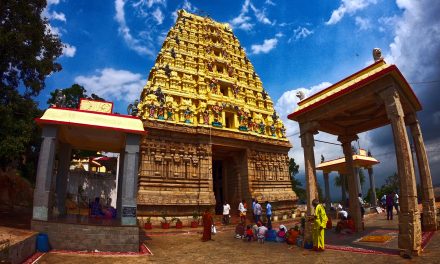
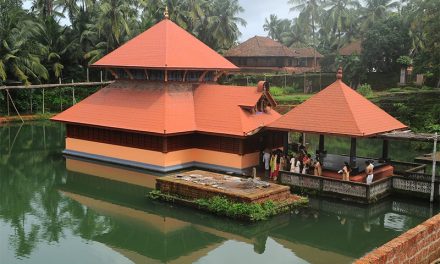









Attaching access to location map, travel suggestions along with facilities to stay at the place would make it more comprehensive. Thus Bhakthas, need not be required to refer to different websites for the purpose.
There are a few spelling mistakes, which may please be corrected, by re-reading the article.
Om Namaste,
Very informative about Hindu religion, i am feeling proud be a HINDU and my country is had ever best culture of living and philosophy.
I would like to read similar articles regularly, please add me into your list and send me regular such articles to my email ID given below.
Sincerely,
Vijaykumar
Excellent article. Many things I did not know about Lord Varadaraja I learnt from this article. You could have given some small detail about each photograph.
It is Adi Varadaraja not Athi Varadaraja. Adi means first(original).
Excellent write up
Very detailed description. God’s grace
Thanks for the knowledge as i visted this temple a decade ago. But was unaware of the story behind this.
Wanting to know more about hinduisum, our culture, heritage, and spirituality.
Amazing article, we are speechless in regards to the divine service which the writer is doing to make people aware about their culture and spirituality. God bless and I wish you continue your noble work to help people towards reaching their holy quest.
What a beautiful sculptural art. Great is the power of God.May Lord bless us all.
A vivid description of the divine place with very good illustrations
GREAT, INFORMATIVE
Excellent Information-HARE SRINIVASA
Nice. These type of information to be regularly told for present & future generations.
Very informative concise article.A must read for all visitors to Kanchi. Recent notifications by temple authorities re Darshana timings and tickets would greatly help.
excellent information about the holy place, may God bless us all
Inspiring and stunning. Modern civilization will leave nothing like this for the ages.
Very informative.. May be the life Thirukachchi Nambigal to be more to make the article more
informative, and to enthrall all devotees the life of Namibigal.
Very informative and excellence about adhi vardha.
Author has correctly mentioned as “Athi” Varadarajar and not as “Adhi” which is usual mistake. The deity is made of “Athi” or “Fig” tree log (Athhimaram) hence it is rightly named as “Athi Varadhar”. Even I had that misconception until I read about it today.
Include more videos/youtube of all the functions and festivals. A series on ancient Hindu Temples will be welcome. Thank You for your excellent coverage! Greetings. -Singapore Sarma
Excellent write up
Let us all pray to the Lord Sri Athivaradar to bring copious rains to the country. Amen!
Very educative thank you
some of the words used I think from Tamil language difficult to understand but overall very helpful
Excellent background information. God bless.
I am very glad to know the information about Adi Varadaraja along with pictures. Thank you, please.